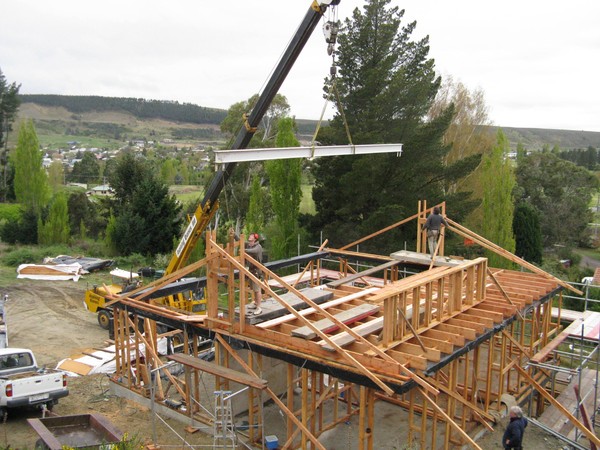The latest Statistics New Zealand consents data shows that, once seasonally adjusted, the number of new dwellings consents fell by 7.6% in April, as compared to March.
Overall, there was a total of 2,106 new dwellings consented in April 2017, which is an 11% decline on the 2,361 consents issued in April 2016.
Statistics New Zealand business indicators senior manager Neil Kelly said the decline was partly due to the timing of Easter this year.
However, he said that, on an annual basis, consents reached a 12-year high this year, with 30,371 new dwellings consented in the year ending April 2017.
This figure is up 8.3% on the previous 12 months.
The annual total includes 10,226 new dwelling consents for Auckland, which is a rise of 9.3% from the previous year and is the most for an April year since 2005.
Kelly added that the trend for the number of new dwellings consented is showing signs of increasing, although this is not yet reflected at a regional level.
Commentators agreed that the timing of Easter impacted on consents in April but indicated they expect strong construction activity to continue.
Westpac senior economist Satish Ranchhod said that April’s decline in consents does need to be put in to perspective, as it appears that consent issuance has levelled off, rather than declined.
While monthly consent issuance appears to have reached a plateau, they expect that consent issuance, and ultimately home building, will continue to rise over the coming year, he said.
“There is still a large amount of pent-up demand, especially in Auckland, following strong population growth and low building in earlier years. But the pickup in consents may be gradual.
“Building costs and interest rates are rising, construction firms are already highlighting difficulties sourcing labour, and house price growth has slowed (particularly in Auckland).
“These factors don’t negate the need for more building but they might mean that the construction cycle is protracted.”
In Auckland, the composition of consents has changed and there has been a trend increase in multi-unit consents (like apartment and townhouses), Ranchhod said.
“This potentially reflects increased activity from developers now that the Unitary Plan has cleared its legal hurdles. We expect this trend to continue over the coming months.
“With a bit over 10,000 new dwellings consented in Auckland over the past year, building and issuance still remains lower than what’s needed to keep up with surging population growth in the region.”
More worrying is that fact that even if the consents trend is increasing, there are widespread concerns over whether the construction industry has the capacity to meet demand in Auckland.
Auckland developer David Whitburn said the construction sector is already struggling with capacity constraints and this will hinder any attempts, like the Government’s new house building programme, to ramp up building activity dramatically.
“Put simply, we haven’t got the tradespeople necessary to carry out the level of new building required to address the Auckland’s housing shortage.”
Given construction tradespeople are skilled professionals, the only way to address the problem in the short term is through immigration, he said.
“Long term, we need to have more people going into construction related trades.
"We need to invest money in education to ensure that schools have the resources to help get more pupils into the trades and that apprenticeships are better supported and promoted as a career option.”
Read more:
Challenges ahead for Govt build project
Fears over building industry capacity




 Search
Search
